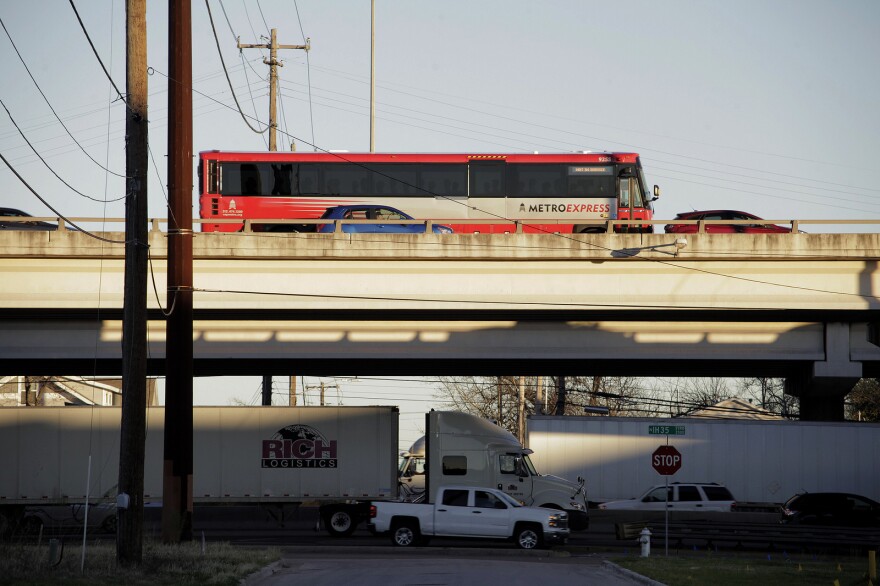The Capital Metro board of directors on Monday unanimously approved a plan to overhaul its transit service. Cap Metro says Connections 2025 is designed to improve rider experience by creating a 24/7 transit system and expanding service.
"Today, our board showed its dedication to improving transportation in Central Texas through smart planning," Cap Metro President and CEO Linda Watson said in a statement. "Major investments to build a better bus network will kick-off in 2018, and will continue paying off over the next 10 years. Austin desperately needs more mobility options, and this plan delivers the type of innovation and services people want."
Lawrence Deeter, project manager for Connections 2025, said a top priority for Cap Metro is increasing the frequency of its service.
“We’re almost tripling the number of frequent routes,” he said. “Now, frequency means the route comes by about every 15 minutes, seven days a week, not just on weekdays, not just in rush hours.”
Deeter said Cap Metro currently offers 17 frequent routes, which is enough for the faster service to reach about 80 percent of riders. He said these routes typically operate somewhere between every seven and 15 minutes. Deeter says when Cap Metro has increased frequency in the past, ridership has spiked.
“The reason why increasing ridership is important to Capital Metro is because, quite frankly, our ridership had been going in the wrong direction,” he said. “So we want to work on that, plus match our services to the right markets that are in Austin.”
Deeter admitted that ramping up frequency has meant changes to other services. Dedicating resources to more frequent trips will mean the elimination of certain routes that duplicate service. That idea has drawn criticism from commuters during public comment sessions.
Other features of the plan include: two fare types (local and commuter), four downtown circulator routes and six UT shuttles
The board had already approved some parts of Connections 2025. It signed off on a revamp of the Northwest Express routes, as well as a reduction in fare prices for premium bus service. Amy Peck with Cap Metro said it is working to accommodate future growth and give more people access to transit.
“Affordability issues are causing a lot of people to move out, so it’s like – how can we better connect with the service options that may be available or that may come on board in those surrounding communities?” Peck said.
Cap Metro said operation of the new network is expected to cost an additional $9 million, bringing the total to an estimated $267.8 million. It is expected to fully implement the plan over the next 10 years.
This post has been updated to reflect the vote outcome.




